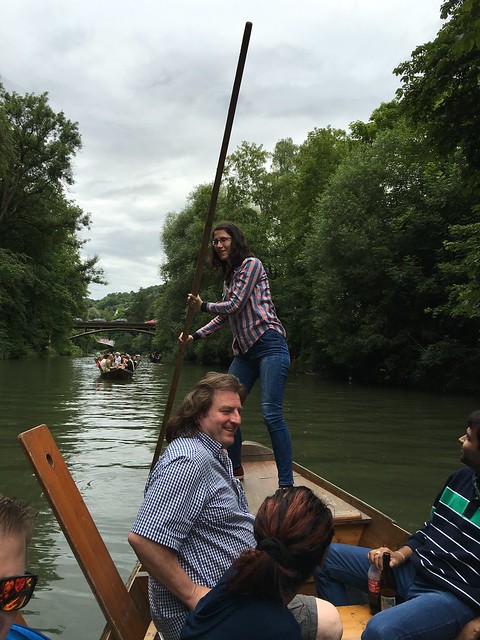
Here’s another story on how the Fulbright program builds lasting bridges between people across nations. This summer I was really pleased to work with fellow Fulbrighter, Károly Hercegfi to bring Hungarian graduate students to the Quantifying User-centered Experiences (QUE-2016) summer school at the University of Stuttgart. I met Károly when I was a Fulbright Scholar at the Budapest University of Technology and Economics (BME) in 2014.
Károly selected five exceptional graduate students from BME to attend the summer school (the leftmost five students in the picture above). They represented an interdisciplinary group, which was really exciting for both the instructors and the other students:
- Dalma Geszten, PhD student in Psychology (MA, BA Psychology)
- Anna Hidas, MSc student in Mechanical Engineering Modelling (BSc Industrian Design Engineering)
- Maria Horvath, MSc student in Industrial Design Engineering (BSc Industrial Design Engineering)
- Mark A. Pulay, PhD student in Psychology (MA Education & Psychology, BA Conductive Education)
- Balint Szabo, PhD student in Management (MSc in Management, BSc Electrical Engineering)
I would like to thank Albrecht Schmidt, who provided generous financial support that allowed the Hungarian students to attend the summer school – thanks Albrecht!
The summer school was a lot of work for everyone, but it wasn’t all work – we also had a chance for fun activities, such as punting on the river in Tubingen. Here’s a picture of Dalma Geszten trying her hand (quite successfully) at guiding our boat:

Below you can read comments by the Hungarian students about the summer school – these comments originally appeared on the Visual Computing BLOG. I’m glad that the students enjoyed the experience. Albrecht, Károly and I are very encouraged by their response, and we are already making plans for including BME students in the 2017 summer school.
“What is your research question? – This was the essence of Margit Pohl’s presentation on qualitative and quantitative research. It is the most important thing a researcher has to have in mind, while doing research. The variables, the method, the data analysis and the whole research process should be based on the research question. If a problem occurs, the researchers should go back to the research question and solve the problem based on it. That is why it is so important to have a good research question, because it is the solid base of the scientific value of our work.”
Balint Szabo, PhD student in Management
“It was an amazing course. Its main topic was human-computer interaction, and it had a very special atmosphere. The students and the lecturers came from different countries with different backgrounds. The only thing connecting them was the passion for researching and the interest in human-computer interaction. During the summer school participants had the opportunity to listen to talks about different topics like Digital Signal Processing, Statistics, Experiment Design, Eye Tracking or Application Research. These talks provided a good basis for meaningful conversations on various aspects of the specific field. There was a chance to participate in brainstorming sessions which yielded in creative ideas on several special topics. Hands-on and poster sessions helped a lot deepening the gained knowledge and getting up to date on the ongoing research topics. Besides these the general conversations were also very useful, for me especially the carrier advices of experienced researchers turned out to be very helpful.”
Anna Hidas, MSc student in Mechanical Engineering Modelling
“The summer school was a great experience for me. In my opinion the cultural diversity and the different research backgrounds of the participants were the key elements of the summer school’s success. The scientific and intellectual atmosphere induced valuable discussions about human-computer interaction questions and helped us to deepen our knowledge. The whole summer school made a powerful impression on me. I got useful and practical advice on how to be a better researcher.”
Dalma Geszten, PhD student in Psychology
“I learned a lot about EEG and Eye tracker signal processing which are very common tools now a days in my research field. The hands-on sections provided us useful experiences about the filtering process as well. We had opportunity to visit the amazing and modern lab in SimTech we tried several different kind of eye tracker and Virtual reality devices. Most importantly we got new relationship with other students and senior researchers.”
Mark Pulay, PhD student in Psychology
